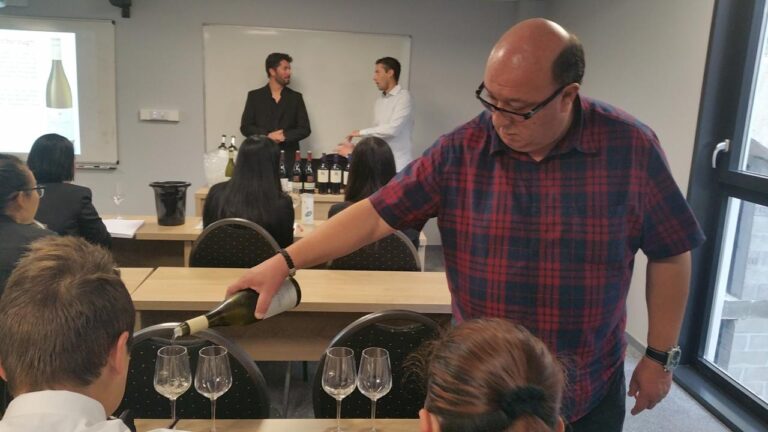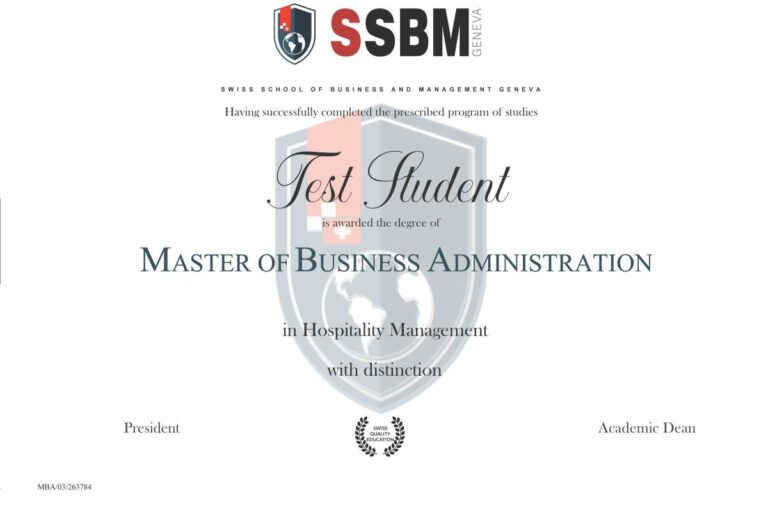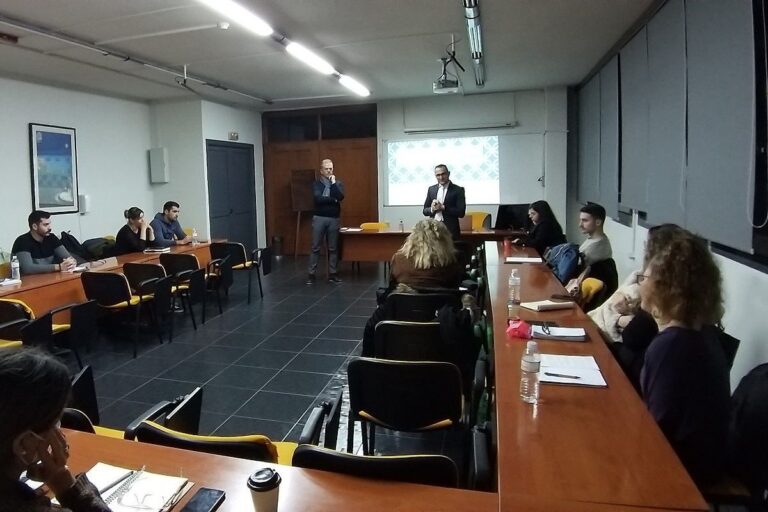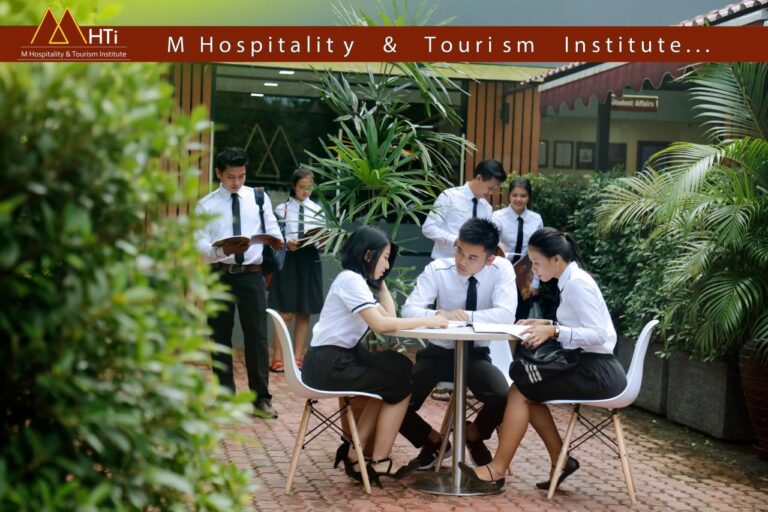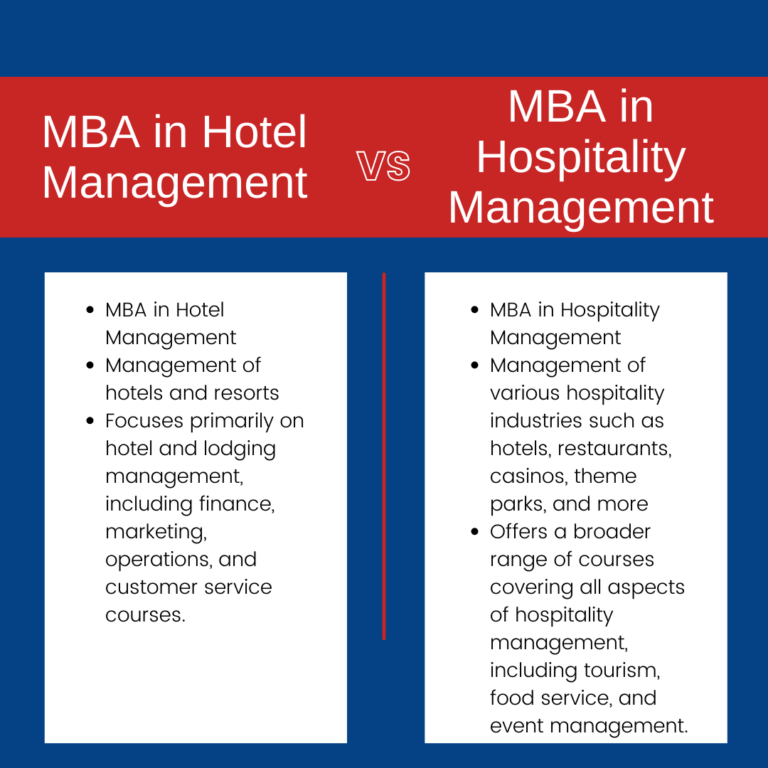MBA in Hospitality Online Courses A Comprehensive Guide
MBA in hospitality online courses offer a flexible and convenient pathway to a rewarding career in the dynamic hospitality industry. This comprehensive guide explores the curriculum, learning methods, career prospects, and financial considerations associated with these programs, providing prospective students with the information they need to make informed decisions. We’ll delve into the advantages and challenges of online learning in this specific context, comparing it to traditional classroom settings and highlighting the unique opportunities it presents.
From understanding the various specializations available, such as hotel management and culinary tourism, to navigating the admission process and exploring financial aid options, this guide aims to demystify the world of online MBA hospitality programs. We’ll also examine the technological tools and support systems in place to ensure a successful learning experience, ultimately empowering you to confidently pursue your career goals within the hospitality sector.
Program Overview
An online MBA in Hospitality offers a flexible and convenient pathway to advance your career in the dynamic hospitality industry. This program blends traditional business management principles with specialized hospitality knowledge, equipping graduates with the skills needed to excel in various roles within hotels, restaurants, tourism, and related sectors. The curriculum is designed to be both rigorous and practical, incorporating real-world case studies and interactive learning experiences.
Typical Curriculum of an Online MBA in Hospitality, MBA in hospitality online courses
Online MBA in Hospitality programs typically cover a broad range of core business subjects, including accounting, finance, marketing, and operations management. These foundational courses are complemented by specialized hospitality modules focusing on areas such as revenue management, hotel operations, food and beverage management, tourism marketing, and hospitality law. Many programs also incorporate elective courses allowing students to tailor their studies to their specific career goals.
The delivery method often includes a mix of video lectures, online discussions, assignments, and potentially virtual simulations or case studies.
Specializations within Online Hospitality MBAs
Several specializations exist within online hospitality MBAs, catering to diverse career aspirations. Hotel management focuses on the operational aspects of hotels, including front office management, housekeeping, and revenue optimization. Culinary tourism combines the business aspects of hospitality with the culinary arts, focusing on developing and marketing food-based tourism experiences. Other potential specializations may include event management, sustainable tourism, or hospitality technology.
The choice of specialization often depends on the individual’s prior experience and career objectives. For instance, someone with a background in culinary arts might choose culinary tourism, while someone with experience in hotel operations might opt for hotel management.
Admission Requirements for Online MBA in Hospitality Programs
Admission requirements vary across institutions but generally include a bachelor’s degree from an accredited university, a minimum GPA (often around 3.0), and GMAT or GRE scores (though some programs may waive these requirements based on work experience). Many programs also require professional experience in the hospitality industry, often ranging from two to five years. A strong application essay outlining career goals and relevant experience is also crucial.
Some programs might also require letters of recommendation from professional references. It is essential to check the specific requirements of each institution before applying.
Comparison of Online MBA in Hospitality Programs
The following table compares four hypothetical online MBA in Hospitality programs. Note that these are illustrative examples and actual program details may vary. It is crucial to verify information directly with the respective institutions.
| Program Name | Tuition Fees (USD) | Program Length (Months) | Accreditation |
|---|---|---|---|
| University A | $50,000 | 24 | AACSB |
| University B | $45,000 | 18 | AACSB, ACBSP |
| University C | $60,000 | 24 | AACSB |
| University D | $40,000 | 12 | ACBSP |
Learning Methods and Technologies
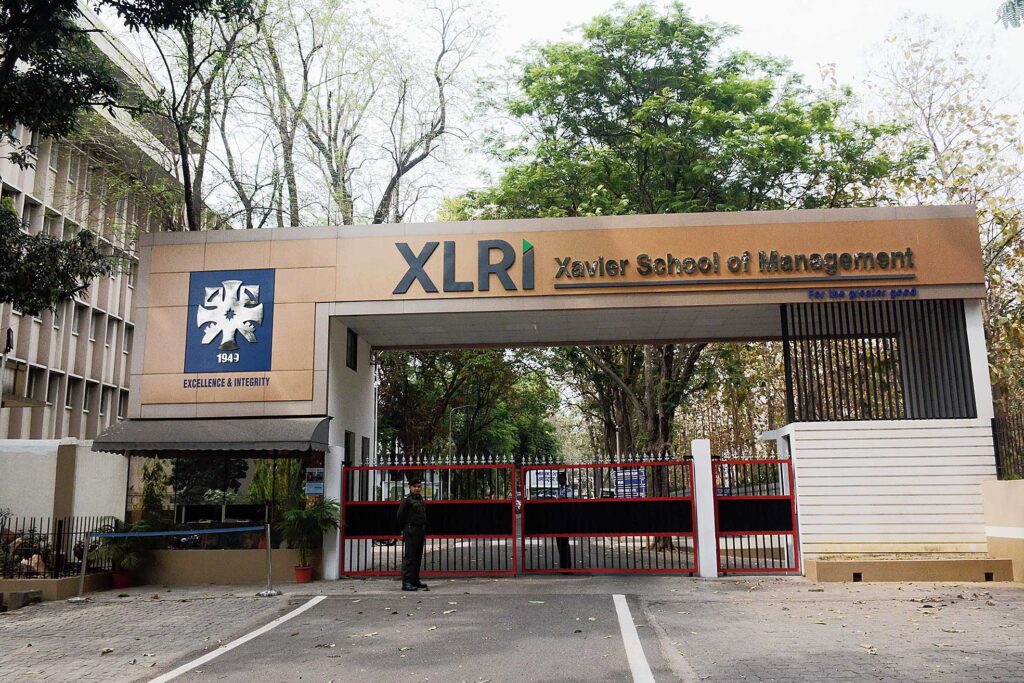
Our online MBA in Hospitality program leverages a variety of innovative learning methods and technologies to provide a rich and engaging educational experience, mirroring the dynamic nature of the hospitality industry itself. We understand that successful learning requires flexibility and accessibility, and our approach reflects this commitment.Our program employs a blended learning approach, combining asynchronous and synchronous learning activities to cater to diverse learning styles and schedules.
This allows students to engage with the material at their own pace while also benefiting from real-time interaction with faculty and peers.
Online Learning Methods
The program utilizes a multifaceted approach to online learning, ensuring a comprehensive and engaging experience. Video lectures delivered by industry experts provide foundational knowledge and insights. Interactive simulations allow students to apply theoretical concepts to realistic hospitality scenarios, fostering critical thinking and problem-solving skills. Rigorous case studies, drawn from real-world examples within the hospitality sector, challenge students to analyze complex situations and develop strategic solutions.
These diverse methods cater to various learning preferences, ensuring a dynamic and effective learning journey.
Technologies Used for Learning and Collaboration
A robust technological infrastructure underpins the program’s success. A sophisticated Learning Management System (LMS) serves as the central hub for course materials, assignments, communication, and assessment. This platform provides a centralized location for all course-related activities, ensuring easy access and seamless navigation. Virtual classrooms facilitate synchronous learning through live lectures, interactive discussions, and collaborative projects. These virtual environments replicate the collaborative atmosphere of a traditional classroom while offering the flexibility of online learning.
Furthermore, communication tools such as discussion forums and integrated messaging systems promote peer-to-peer interaction and knowledge sharing.
Advantages and Disadvantages of Online Learning Compared to Traditional Classroom Learning
Online learning offers several key advantages for hospitality MBA students. The flexibility to learn at one’s own pace and location is particularly beneficial for working professionals. The accessibility of online resources and the opportunity to engage with a diverse cohort of students from around the globe are further advantages. However, the lack of face-to-face interaction can be a disadvantage for some learners who thrive in a more traditional classroom setting.
Effective self-discipline and time management are crucial for success in an online environment. Additionally, the absence of immediate feedback in certain learning activities might require more proactive self-assessment.
Technical Requirements for Students
Successful participation in the online MBA in Hospitality program requires access to reliable technology. The following Artikels the essential technical requirements:
- A high-speed internet connection with a minimum download speed of 5 Mbps and an upload speed of 2 Mbps.
- A computer or laptop with a reliable operating system (Windows, macOS, or Chrome OS).
- Up-to-date web browser (Chrome, Firefox, Safari, or Edge).
- Headphones or speakers with a microphone for audio communication.
- Access to a word processing software (e.g., Microsoft Word, Google Docs).
- A dedicated workspace conducive to focused learning.
Career Prospects and Industry Trends

An online MBA in hospitality equips graduates with the strategic management skills and industry knowledge necessary to thrive in a dynamic and ever-evolving sector. This program provides a pathway to diverse and rewarding career opportunities, preparing graduates to navigate the complexities of the modern hospitality landscape and capitalize on emerging trends.Graduates with an online MBA in hospitality are well-positioned for a wide range of roles across various segments of the industry.
The combination of business acumen and hospitality expertise makes them highly sought-after by employers.
Career Paths for Hospitality MBA Graduates
The skills gained through an online MBA in hospitality program open doors to various career paths. These roles often involve leadership responsibilities and strategic decision-making. Examples include senior management positions in hotels, resorts, restaurants, cruise lines, event planning companies, and even within the technological arms of the industry that are increasingly influencing operations. Specific roles can range from General Manager to Revenue Manager, Director of Operations, and even entrepreneurial ventures in hospitality-related fields.
Key Skills and Competencies
This program cultivates a unique blend of hard and soft skills crucial for success in the hospitality industry. Graduates develop strong analytical and problem-solving abilities, complemented by effective communication, leadership, and teamwork skills. Financial management, marketing, and strategic planning are also integral components of the curriculum, preparing individuals for senior leadership roles. Furthermore, the program often emphasizes technological proficiency, given the increasing reliance on technology in hospitality operations.
For example, graduates gain expertise in revenue management software, customer relationship management (CRM) systems, and data analytics tools used to optimize operational efficiency and enhance customer experiences.
Current Trends and Future Outlook
The hospitality industry is experiencing significant transformation driven by technological advancements, evolving consumer preferences, and global economic shifts. Sustainable tourism practices, personalized guest experiences, and the integration of technology are reshaping the industry. An online MBA in hospitality provides graduates with the tools and knowledge to understand and navigate these trends effectively. For example, the rise of online travel agencies (OTAs) and the increasing importance of digital marketing require strategic understanding of online reputation management and digital marketing strategies.
The growing emphasis on sustainability requires knowledge of environmentally friendly practices and responsible tourism management. Understanding these trends allows graduates to develop innovative strategies for their employers or their own entrepreneurial ventures. Consider, for example, the increasing adoption of AI in hotel operations, from chatbots for guest service to predictive analytics for revenue management; an MBA graduate is well-positioned to leverage these technologies.
Sample Resume for a Hospitality MBA Graduate
| Contact Information | Jane Doe (123) 456-7890 jane.doe@email.com LinkedIn Profile URL |
|---|---|
| Summary | Highly motivated and results-oriented hospitality professional with an MBA in Hospitality Management and 5+ years of experience in hotel operations. Proven ability to lead teams, optimize performance, and enhance guest satisfaction. Seeking a challenging leadership role in a dynamic hospitality environment. |
| Education | Master of Business Administration (MBA) in Hospitality Management, [University Name], [Year of Graduation] Bachelor of Science in Hospitality Management, [University Name], [Year of Graduation] |
| Experience | Hotel Manager, [Hotel Name], [Dates of Employment]
Assistant Hotel Manager, [Hotel Name], [Dates of Employment]
|
| Skills | Revenue Management, Hotel Operations, Customer Service, Team Leadership, Financial Management, Marketing, Strategic Planning, Data Analysis, CRM Software, Sustainability Practices |
Program Costs and Financial Aid
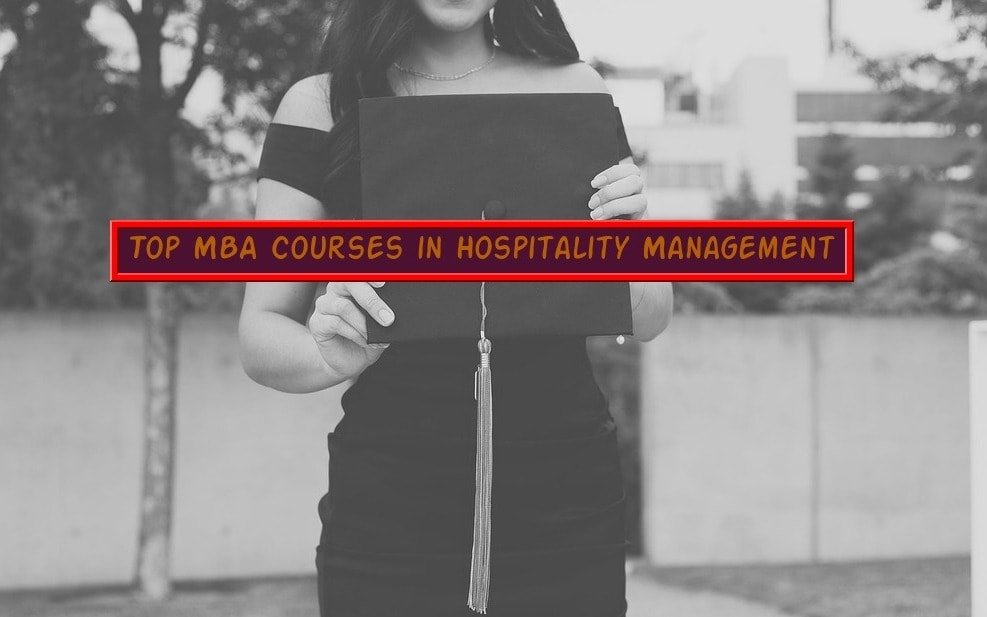
Pursuing an advanced degree like an online MBA in hospitality requires careful consideration of the financial investment. This section provides a transparent overview of the typical costs associated with our program and the various financial aid options available to help make your educational journey more accessible.
Tuition and Fees
The total cost of our online MBA in hospitality program is comprised of tuition fees and other associated charges. Tuition is typically structured on a per-credit basis, with the total cost dependent on the number of credits required for graduation. Additional fees may include technology fees (covering access to online learning platforms and resources), administrative fees, and potentially late payment fees.
A detailed breakdown of these costs is available in our program brochure and on our website’s financial aid page. For example, a program requiring 36 credits might have a tuition cost of $X per credit, resulting in a total tuition cost of $Y. Technology fees might add another $Z to the total cost. This information is subject to change, and prospective students are advised to check the latest fee schedule on the university website.
Financial Aid Options
Several financial aid options are available to help students finance their online MBA in hospitality. These options can significantly reduce the overall financial burden and make pursuing a higher education more attainable.
Scholarships
Merit-based and need-based scholarships are often offered by the university, industry organizations, and private foundations. These scholarships can cover a portion or even the entirety of tuition fees. Eligibility criteria vary depending on the specific scholarship, often considering academic performance, financial need, and professional experience. Students are encouraged to explore scholarship opportunities early in the application process.
For example, the “Hospitality Excellence Scholarship” might award $5,000 annually to students with a demonstrated commitment to sustainable hospitality practices.
Loans
Federal and private student loans provide another avenue for financing education. Federal student loans often come with more favorable interest rates and repayment terms compared to private loans. However, it’s important to understand the repayment obligations before borrowing. Students should carefully consider their financial situation and repayment capacity before taking out student loans. For instance, a student might secure a federal loan covering 50% of their tuition costs, which they will then repay over a period of 10 years after graduation.
Grants
Grants are forms of financial aid that do not require repayment. They are typically awarded based on financial need and may be offered by the university, government agencies, or private organizations. Grants can significantly alleviate the financial burden of education. For example, a Pell Grant can provide substantial funding for students from low-income families.
Cost-Effectiveness of Online vs. On-Campus Programs
Online MBA in hospitality programs often offer cost advantages compared to traditional on-campus programs. The absence of commuting costs, on-campus housing expenses, and potentially lower overall tuition fees can result in substantial savings. However, this comparison needs to be made on a case-by-case basis, taking into account individual circumstances and the specific programs being compared. For example, an online program might have a lower tuition but require students to purchase their own software or equipment, slightly offsetting the cost savings.
Financial Aid Options Comparison
| Financial Aid Option | Description | Eligibility Criteria | Typical Funding Amount |
|---|---|---|---|
| University Scholarships | Merit-based and need-based awards offered by the university. | Academic achievement, financial need, professional experience (varies by scholarship). | Varies; can range from partial to full tuition coverage. |
| Federal Student Loans | Loans offered by the federal government with relatively favorable terms. | US citizenship or eligible non-citizen status, enrollment in an eligible program. | Varies depending on financial need and program cost. |
| Private Student Loans | Loans from private lenders; interest rates and terms may vary. | Creditworthiness (often requires a co-signer), enrollment in an eligible program. | Varies depending on lender and applicant’s creditworthiness. |
| Grants (e.g., Pell Grant) | Need-based financial aid that does not require repayment. | Financial need, US citizenship or eligible non-citizen status, enrollment in an eligible program. | Varies depending on financial need and program cost. |
Student Experience and Support
Embarking on an online MBA in hospitality requires a supportive learning environment. Successful programs prioritize student well-being and academic success through a variety of services and resources designed to foster a positive and productive learning experience. These programs recognize the unique challenges of online learning and actively work to mitigate them.A key aspect of a successful online MBA program is the comprehensive support system it provides.
This extends beyond simple technical assistance and encompasses a holistic approach to student success.
Academic Advising and Support
Academic advisors play a crucial role in guiding students through their program. They help students select appropriate courses, create personalized study plans, and navigate any academic challenges they may encounter. This personalized guidance ensures students stay on track towards graduation and helps them effectively manage their time and workload. Regular check-ins and proactive communication from advisors are hallmarks of a supportive online learning environment.
Furthermore, access to online tutoring services and writing centers can provide additional assistance with coursework.
Career Counseling and Placement Services
Career services are essential for hospitality MBA graduates. Many programs offer career counseling, resume and cover letter assistance, mock interviews, and networking opportunities with industry professionals. These services help students translate their academic achievements into successful career transitions. Access to online job boards specifically tailored to the hospitality industry is also common. Some programs even offer personalized mentorship programs connecting students with alumni working in their desired fields.
Student-Faculty Interaction and Collaboration
Effective online MBA programs foster a strong sense of community and collaboration. This is achieved through various methods, including interactive online forums, virtual office hours, group projects, and online discussions. These opportunities allow students to engage with faculty and peers, ask questions, share insights, and build professional networks. Regular communication from faculty, prompt feedback on assignments, and opportunities for real-time interaction are crucial elements of a positive online learning experience.
The use of collaborative platforms and technologies further enhances the learning experience by enabling seamless interaction and knowledge sharing.
Examples of Successful Alumni and Their Career Journeys
Many online MBA in hospitality programs boast successful alumni who have leveraged their education to advance their careers. For instance, one alumnus might have used their enhanced business acumen to successfully launch their own boutique hotel, while another might have ascended to a senior management position at a major hospitality chain. A third example could be an alumnus who transitioned into a consulting role, advising hospitality businesses on strategic planning and operational efficiency.
These success stories serve as powerful testimonials to the value of an online MBA in hospitality and the effectiveness of the support systems provided. Program websites often feature such success stories to showcase the positive impact of their programs.
Tips for a Successful Online Learning Experience
To maximize the benefits of an online MBA in hospitality, prospective students should consider the following:
- Establish a dedicated study space free from distractions.
- Develop a consistent study schedule and adhere to it.
- Actively participate in online discussions and forums.
- Utilize available academic and career support services.
- Network with fellow students and faculty.
- Proactively seek feedback and address any challenges promptly.
- Maintain open communication with your instructors.
Final Conclusion
Pursuing an MBA in hospitality online offers a compelling blend of flexibility, accessibility, and career advancement opportunities. By understanding the program structure, learning methods, career prospects, and financial considerations, prospective students can make informed decisions that align with their professional aspirations. The hospitality industry’s ongoing evolution makes this online learning path a particularly attractive option for those seeking to equip themselves with the necessary skills and knowledge to thrive in this dynamic field.
We hope this guide has provided valuable insights into this exciting educational journey.
Query Resolution: MBA In Hospitality Online Courses
What are the typical job roles for graduates of online MBA in hospitality programs?
Graduates often find roles in hotel management, resort operations, event planning, culinary management, revenue management, and consulting within the hospitality sector.
How long does it typically take to complete an online MBA in hospitality?
Program lengths vary, but many can be completed within 12 to 24 months, depending on the program’s structure and the student’s pace.
Are online MBA in hospitality programs accredited?
Accreditation varies by program and institution. It’s crucial to check the accreditation status of any program before enrollment to ensure its legitimacy and recognition within the industry.
What is the average salary for graduates with an online MBA in hospitality?
Salaries depend on factors such as experience, location, and specific role. However, an online MBA can significantly boost earning potential compared to those without.
Can I transfer credits from a previous degree program into an online MBA in hospitality?
Credit transfer policies vary between institutions. It’s essential to contact the admissions office of your chosen program to determine the feasibility of transferring credits.
